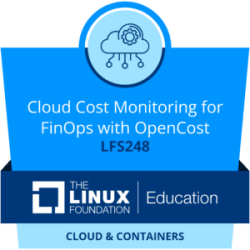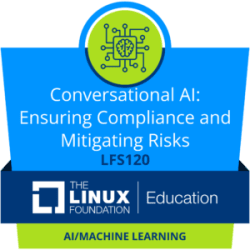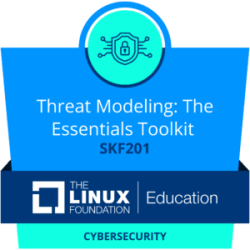Images
In this course you will learn about installation of a multi-node Kubernetes cluster using kubeadm, and how to grow a cluster, choosing and implementing cluster networking, and various methods of application lifecycle management, including scaling, updates and roll-backs. The course also covers configuring security both for the cluster as well as containers, managing storage available to containers, monitoring, logging and troubleshooting of containers and the cluster, configuring scheduling and affinity of container deployments, using Helm and Charts to automate application deployment, and understanding Federation for fault-tolerance and higher availability.
This course is ideal for those wishing to manage a containerized application infrastructure. This includes existing IT administrators, as well as those looking to start a cloud career.
Similar resources
The key to a successful open technology project is to ensure a neutral playing field for all developers, technologists, and companies to collectively contribute to project evolution and growth. The Linux Foundation was built on the idea of the democratization of code and scaling adoption, for all projects equally. Expert legal and governance support programs ensure everyone is on the same playing field.


Introduction to JavaScript Security (LFS184)

Security for Software Development Managers (LFD125)

Cloud Cost Monitoring for FinOps with OpenCost (LFS248)

Conversational AI: Ensuring Compliance and Mitigating Risks (LFS120)

WebAssembly Components: From Cloud to Edge (LFD134)














